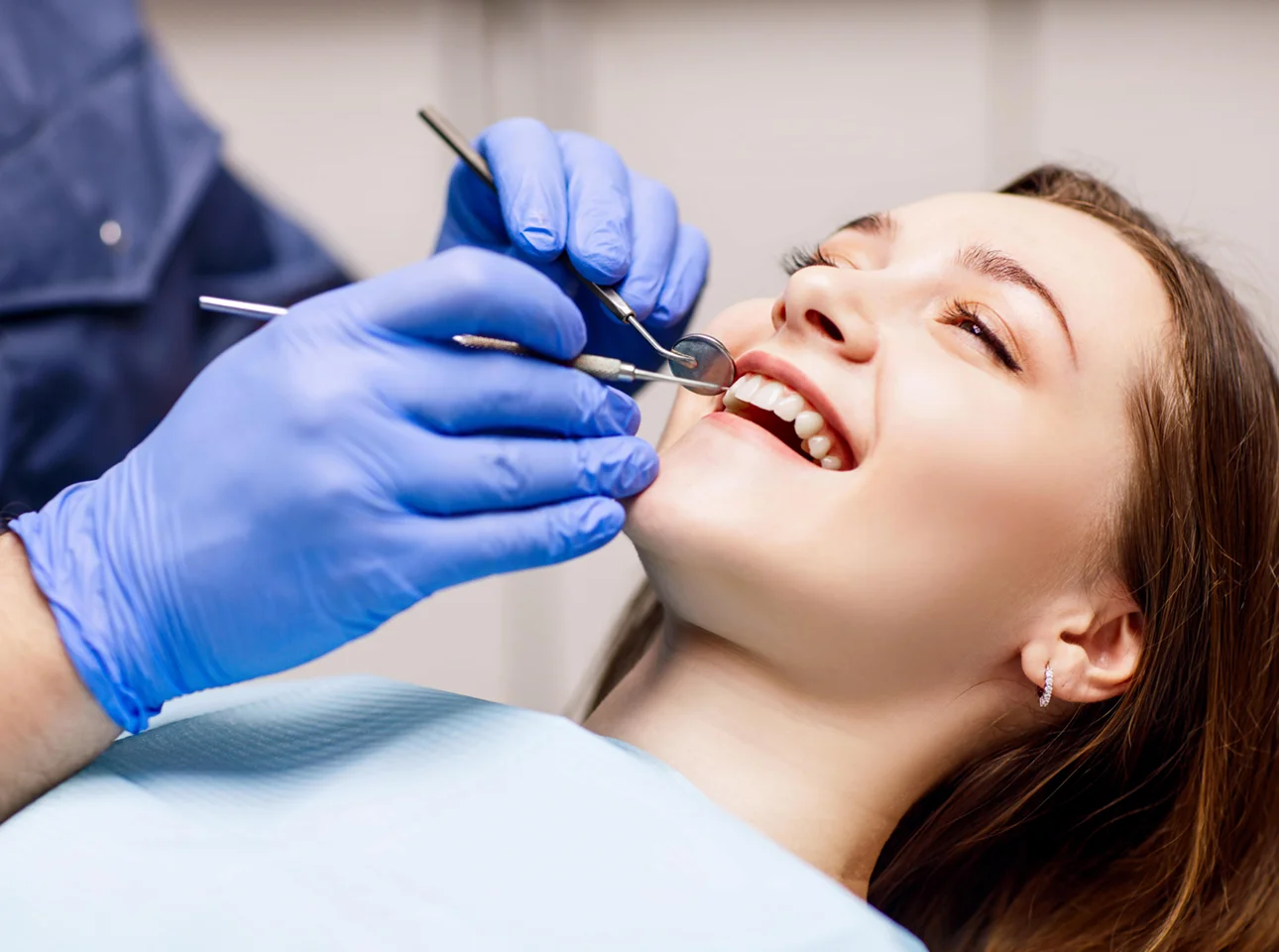Is there a persistent pain on your face, neck, or shoulders, or in and around the ear when you speak, chew, or even when you open your mouth wide? Do not overlook it; consult your dentist immediately because you may be a victim of temporomandibular joint disorders.
Are you suffering from TMJ pain as well?
A solution to your TMJ/TMD pain in New Delhi and Gurgaon
Do you experience pain or a cracking pot sound while opening or closing your mouth? Do you experience soreness near your ears when you wake up in the morning or after a nap? Are you able to open your mouth fully or do you feel any restriction while doing that? Do you suffer from severe headaches or migraines on a regular basis?
All such questions lead to the that one is suffering from a TMJ issue i.e., TEMPOROMANDIBULAR JOINT pain. The Dental Roots, New Delhi, and Sushant Lok have collaborated with Dentician, Mumbai where Dr. Ankita Shah who is a TMJ specialist is now in South Delhi and Gurgaon! She’s an airway-focused dentist who specializes in treating patients with TMJ issues as well.
What is a Temporo Mandibular Joint (TMJ)?
The temporomandibular joint is the jaw joint located on either side of the face in front of the ears. The TMJ is also connected to the neck and several nerves and muscles causing muscle dysfunction. It is a joint that connects your lower jaw to the temporal bones of your skull or simply it is a joint that connects your upper jaw with the lower jaw. The temporomandibular joint helps you to move your jaw up and down, and side to side; so that you can talk, chew and yawn. Now the problems with your jaw and the muscles attached to this joint and control it are called temporomandibular disorders. It is estimated that 30% of the population suffers from temporomandibular disorder at some point in their lives.
What are the Types of Temporo Mandibular Disorders (TMD)?
- Myofascial pain- This is pain in muscles that control the jaw function like the muscles that help in chewing, talking, yawning, opening, and closing of the mouth.
- Disc derangement in the joint- There is a shock-absorbing disc in the TMJ called the articular disc which helps in keeping the jaw movements smooth. If this disc gets eroded or dislocated from its position, pain starts in the joint. The jaw may get locked and the patient cannot open and close his mouth normally.
- Degenerative conditions occur when joint cartilage is affected by arthritis.
- Inflammatory conditions- pain, redness, and swelling can occur when the joint is damaged by a blow or impact.
What are the causes of TMD?
Multiple factors are responsible for this disorder. Some of the common causes are:
- Stress- When you put a lot of pressure on the joint by clenching the teeth tight during stress.
- Trauma- Impact or blow to the joint damages the tissue of the joint.
- Genetic causes
- Improper bite- Constant improper bite leads to stress over the joint leading to disorder.
- Muscle disorders
- Arthritis
- Bony disorders
What are the common signs and symptoms of TMD?
Temporo mandibular joint disorder aka TMD can be a little difficult to diagnose and treat but with decades of experience of Dr. Shah, one can be rest assured that the outcome of the procedure will rectify the main problem.
- Pain in the joint when swallowing or chewing
- Clicking, and popping of jaw joints
- Limited opening of the mouth
- Inability to open mouth smoothly
- Jaw lock- unable to open or close
- The jaw deviates to one side when opening
- Improper bite
- Clenching of teeth
- Sensitivity of teeth
- Facial pain
- Pain in cheek muscles
- Ear problems- earache, ringing in the ears
- Headaches, neck pain
How to diagnose TMD?
Various diagnostic aids and advanced technology are now available to diagnose temporomandibular disorders.
- T-SCAN does digital occlusal (bite) analysis to identify the problems in occlusion
- Electrodiagnostic system- identifies abnormalities in the lower jaw and the muscles of the joint.
- 3D jaw tracker- it records all the jaw movements precisely and in three dimensions which helps to identify the precise cause of the dysfunction.
- Electromyography (EMG)- It measures the activity of the muscles which helps to identify and correct bite positions.
- Joint vibration analysis- it helps in the assessment of the condition of the joint.
What is the management of TMJ?
- Selfcare- Following a soft diet, moist heat/ice application in case of swelling, and jaw exercises at home.
- Behavioral management- avoiding clenching of the teeth.
- Psychological counseling in case of stress management.
- Pharmacological management by NSAIDS, and steroid injections in case of inflammation.
- Some disorders like locking of the jaw can be corrected manually by the dentist.
- Surgical approaches like arthroscopy, joint replacement, etc., in case of trauma, arthritis, or inflammation.
Conclusion
This is the joint that you use most of the day, so try to avoid putting too much pressure on the joint by avoiding repeated clenching of the teeth, avoiding stress, and seeking immediate dental care when you notice abnormalities in jaw movements. We, at The Dental Roots, New Delhi and Gurgaon make sure that the best possible treatment should be given out to our patients, immaterial of the age or the problem associated. With Dr. Shah on board with us, who has decades of experience in her specialized field has again proven that The Dental Roots is not only a multi-disciplinary clinic but also a perfect blend of modern dentistry.




35011845273095133592.webp)

